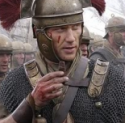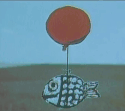|
Taerkar posted:There was also a problem* with the quieter sections of the front more or less just going through the motions and not really doing much actual fighting. Ha, I liked in they shall not grow old where the one guy said I think the Saxons were alright because their snipers would shoot to miss but even the other Germans didn't like Bavarians. Might be the other way around I read Vimy years ago and that's where most of my knowledge comes from.
|
|
|
|

|
| # ? Apr 25, 2024 14:23 |
|
ilmucche posted:Ha, I liked in they shall not grow old where the one guy said I think the Saxons were alright because their snipers would shoot to miss but even the other Germans didn't like Bavarians. Might be the other way around I think it was the Bavarians who were decent, and the Prussians who were dicks. But it's been a while since I saw it.
|
|
|
|
https://twitter.com/MythologyBot/status/1205543918521241603 Okay who put the title of my sextape through Google translate?? Sorry I have no idea what an appropriate thread for this would be.
|
|
|
|
ilmucche posted:Ok cool. Thought it might be kind of like that. In Graves' memoir (which is quite good!), he talks about the different sectors they get sent up on. Where the lines are farther apart it's more quiet, with some patrol activity and building of forward outposts. They then get sent to some sector where the lines are extremely close together, from memory with a bunch of ruined buildings perhaps from a village. That one is exciting and has more regular mortar fire and sniping, but less patrolling. Don't think of it as a trench raid. With enough space in front, you have a series of forward outposts that you set up for sniping, perhaps light automatic weapons emplacement, and as a jumping-off point for your patrols. When you go to grab a guy or two on a night patrol, you try to snatch them out of an outputs or off of an enemy patrol. By default you are constantly rebuilding your trenches and dugouts (they need digging out and bailing if it rains), improving your trenches and dugouts, going to the rear for various training, and stringing wire. So much stringing wire.
|
|
|
|
Does anyone have good histories of the empires of Indonesia and Malaysia?
|
|
|
|
A combination of War Thunder and BalloonFish's RN posts have made me want to read more about naval trawlers and so on. Is there a good book or memoir about British trawlers, corvettes, or motor gun boats in WW2? I've read last Stand of the Tin Can Sailors and I'd like somethign along those lines, not a grand history.
|
|
|
|
Beardless posted:A combination of War Thunder and BalloonFish's RN posts have made me want to read more about naval trawlers and so on. Is there a good book or memoir about British trawlers, corvettes, or motor gun boats in WW2? I've read last Stand of the Tin Can Sailors and I'd like somethign along those lines, not a grand history. Coastal Forces At War: Royal Navy 'Little Ships' by David Jefferson covers all of that. There's also David Lambert's Allied Coastal Forces of WW2, and an old out-of-print book from the 70s called Trawlers Go To War (can't remember the author) which crops up in secondhand book shops now and then. Memoir-wise, I really recommend (and have mentioned/quoted it a lot in this thread) Three Corvettes by Nicholas Monsarrat, which is a compendium of three books written and published in 'real time' during the war as he served in corvettes on the Atlantic and the North Sea. His novel The Cruel Sea is excellent and while it is fiction it clearly draws very heavily from his own experiences. Night Action: MTB Flotilla At War is Peter Dickens' memoir of commanding, well, an MTB Flotilla in the Channel.
|
|
|
|
Cessna posted:Depends on where we were. This reminded me of something I've been meaning to ask for a while, for people with practical experience does red light actually have any advantages beyond just not ruining your night vision? I mean I can see taillights on other cars plenty far away when I'm driving so it doesn't feel like it's actually "stealthy" or anything.
|
|
|
|
BalloonFish posted:Coastal Forces At War: Royal Navy 'Little Ships' by David Jefferson covers all of that. There's also David Lambert's Allied Coastal Forces of WW2, and an old out-of-print book from the 70s called Trawlers Go To War (can't remember the author) which crops up in secondhand book shops now and then. Excellent, thank you!
|
|
|
|
Lawman 0 posted:Does anyone have good histories of the empires of Indonesia and Malaysia? Seconding this, especially the empires before the Dutch arrived in Indonesia.
|
|
|
|
Beardless posted:Excellent, thank you! Peter Scott's The Battle of the Narrow Seas is also worth a read. Scott commanded a gunboat flotilla during the war, so he really knows what he's describing, and it's full of anecdotes from people he served with. It was written shortly after the war, so more recent histories which can use German sources are more accurate as histories, but Scott really brings it to life.
|
|
|
|
C.M. Kruger posted:This reminded me of something I've been meaning to ask for a while, for people with practical experience does red light actually have any advantages beyond just not ruining your night vision? I mean I can see taillights on other cars plenty far away when I'm driving so it doesn't feel like it's actually "stealthy" or anything. I have no clue what the answer to your question is but I know if I have to have a small light source in a dark room while sleeping, I'd prefer red to green any day. 30 minutes of dark with a typical green digital clock display it may as well be daylight
|
|
|
|
Milo and POTUS posted:I have no clue what the answer to your question is but I know if I have to have a small light source in a dark room while sleeping, I'd prefer red to green any day. 30 minutes of dark with a typical green digital clock display it may as well be daylight Human eyes are more sensitive to green light. There's a reason 16 bit RGB in computers is 5:6:5.
|
|
|
|
feedmegin posted:Human eyes are more sensitive to green light.
|
|
|
|
C.M. Kruger posted:This reminded me of something I've been meaning to ask for a while, for people with practical experience does red light actually have any advantages beyond just not ruining your night vision? I mean I can see taillights on other cars plenty far away when I'm driving so it doesn't feel like it's actually "stealthy" or anything. It is just to preserve night vision. Or, to think of it another way, you can use less light and still see what you need to, which reduces your visual signature.
|
|
|
|
HEY GUNS posted:Is there a functional reason for this or is it just sort of a biological byproduct some science googling pulled up two hypotheses for why we evolved color vision in this article: https://evolution-outreach.biomedcentral.com/articles/10.1007/s12052-008-0088-x quote:It has been hypothesized that being able to detect red fruits against a green background is the reason that trichromatic color vision evolved in primates (reviewed by Surridge et al. 2003) ... The behavioral evidence, however, is mixed. the implication would be that we need the extra green we have to accomplish one of these goals on a related note, scientists think they've discovered the exact seven mutations that transformed our UV-sensitive proto-cone into the blue one. they've mutated the one to the other in both directions. that's crazy https://www.ncbi.nlm.nih.gov/pmc/articles/PMC4270479/ quote:Human S1 can be made UV-sensitive (λmax = 360 nm) by introducing seven mutations T46F, L49F, F52T, L86F, P93T, G114A and T118S, whereas the UV-sensitive pigment in mouse (Mus musculus) (mouse S1, λmax = 359 nm) can be made blue-sensitive (λmax = 411 nm) by the seven reverse mutations; however, when the seven mutations are introduced into mouse S1 individually, none of the individual changes produce any λmax-shift, showing an extreme case of epistatic interactions. edit: to bring this back around to military history, there was a camouflage color that may have made ships more obvious due to the Purkinje effect: https://en.wikipedia.org/wiki/Mountbatten_pink quote:In 1940, while escorting a convoy, Lord Mountbatten noted that one ship in the group vanished from view much earlier than the remainder. The ship, a Union-Castle liner, was painted lavender mauve grey. Mountbatten thus became convinced of the colour's effectiveness as a camouflage during dawn and dusk. 
oystertoadfish fucked around with this message at 16:25 on Dec 14, 2019 |
|
|
|
HEY GUNS posted:Is there a functional reason for this or is it just sort of a biological byproduct Green light makes up the biggest chunk of the sun's output, and our eyes are adapted to use what's there
|
|
|
|
oystertoadfish posted:some science googling pulled up two hypotheses for why we evolved color vision in this article: I've heard that when the USAF was testing the first real stealth aircraft in the late 70s and early 80s, they discovered that a similar color was the optimal shade to paint an aircraft for invisibility against he night sky. And then painted them black anyway.
|
|
|
|
Hold on a moment, I'm marking out the long runilmucche posted:Ok cool. Thought it might be kind of like that. This comes in two parts: the rhythm of life, and what happens within it. To begin with, everyone who's in the infantry is actually in a constant process of motion. (It is one of the fantastic ironies of the war is that both sides are constantly moving around, but they're going nowhere.) Come out of rest billets and go "up the line", into a trench of some sort. Four days in the rear trench. Four days in the middle trench. Four days in the front trench. Four days in the middle trench. Four days in the rear trench. Possibly rotate forward and back one more time, possibly not, depends where you are. Then, from the rear trench, back out to rest billets in a farm a few miles away. Spend as long in rest billets as you just did up the line. Back up the line again. This goes on for about 3-6 months. Then it's time to move. Give a handover to whoever's replacing you. Possibly you move via a training camp at the rear and spend some time looking for Mademoiselle from Armentieres, possibly you just go directly to some other part of the front. Either way you're probably getting a few weeks of solid rest, hopefully closer to a few months, before you go back in. And then you get to the new place, you find your new rest billets, you get a handover from whoever's going out. In a few days, it's time to go up the line again, and the whole thing starts over. This pattern holds whether you're in a quiet sector or at the tip of the spear on the Somme. The people in charge, contrary to what Blackadder might have you believe, do actually know that trench life is stressful, you can't just put people there and leave them, and also that any kind of combat is exhausting. It's totally uncontroversial who's been in combat gets relief and rotation to the rear as soon as possible. Unfortunately, when the Big Push is on, "as soon as possible" can be an extended period of time; units get left out on a limb in all the trouble as their relief gets confused or left behind or shelled and broken up en route or diverted to plug some other more urgent gap somewhere. This is where attacks tend to break down before 1918; with the technology available it's just not possible to react to changing circumstances and deploy the right manpower to the right place to maintain the momentum of an attack. When not in battle (which is extremely rare; a man would be somewhat unlucky to see actual bombs-and-bayonets combat during an offensive, and extremely unlucky to see bombs-and-bayonets fighting in two separate offensives), trench life is routine. Each trench has its sentry-points and lookout posts-from which to raise an alarm; these are manned 24/7 and falling asleep on post is technically punishable by death, although only two people were executed for that offence. For everyone else, there are constant working-parties. Repair this, shore up that, dig a new latrine because the old one flooded last week. There's always supplies that need to be fetched and carried and distributed and taken away again and tidied up. Every so often a shell lands in the wrong place or an enemy sniper gets a good shot off, and there's a casualty or two to take to the aid post. Raids are far more rare than you might think (it does also depend on individual personalities of the lieutenants and captains who'd lead them and the brigadiers who'd order them). What's much more common at night is leaving the trench for patrols and wiring-parties. For obvious reasons it's not possible to repair your own barbed wire defences during daylight hours, so this is all done at night. Scouting parties push forward to find out as much as they can about exactly where the enemy trench is and how best to advance to it, and where the gaps in the wire and safe pathways are. Very quickly people realise that if they take control of No Man's Land at night, they can gain an advantage by interfering with the enemy's attempts to scout and repair their own wire; and constant aggressive patrolling at night tends to be an Entente and particularly a British thing. There is probably shelling of some sort. You can't entirely relax, although people learn very quickly when to dive for cover and when to casually look up and remark "hmm, that one's going to land about 300 yards away". If you're somewhere chill like (say) Foncquevillers, there'll likely be a bit of desultory shelling to keep appearances up, just make sure you keep your head down and don't show any stupid lights or smoke, and you'll be left to get on with it. Go somewhere a bit more interesting, somewhere the big nobs are thinking they might attack in a few months, and you'll probably get used to it being more lively. Snipers will be on constant lookout, and the other side's mortars will be waiting to drop some bombs on them if they fire. You'll have intermittent barrages dropped on you from time to time; an hour or so of shelling, a five-minute lift, another 20 minutes of fire, a ten-minute lift, another 5 minutes of fire, a 20 minute-lift, another hour of shelling, and then silence (or something like that). The idea here is basic thought conditioning; you're trying to lodge the idea in the enemy's head that they can never be quite sure when the shelling is going to restart, so they have to stay safe in their dugouts for as long as possible. Then, when it finally comes time for you to attack and you lift your own barrage to facilitate this, you can hopefully get across No Man's Land and capture or kill the enemy in their own dugouts before they feel they can safely come out, at which point they'd raise the alarm and start shooting back. There might be a few stunts or decoy attacks to take part in or fend off; do everything you would do if you were going to attack, make some noise, release some smoke...and then do nothing, just so the other lot can never be sure which is the feint and which is the real attack. If you're very unlucky you'll get dicked with a full-on diversionary attack to distract the enemy from something more important that's happening 50 miles away. Go to one of the notorious posts like Ypres or Vimy or the Argonne, and now it's almost constant shells flying both ways, constant alert, squabbling over shell craters and 20 yards' worth of trench. Every so often, bigger unplanned skirmishes and fights and counter-fights break out and die down again. Just getting up and down the Menin Road is fraught with danger. There are only a few places like this, but if you stay in long enough, you'll eventually get the short straw and have to go to one of them. When out of the line, you're probably able to relax a bit, but if you're fighting for the British Empire there are always working-parties to be done. The universal military experience of the 20th century is not anything to do with combat or bravery or glory, it's going on a working-party. Carry this, repair that, build a new shed, put a new roof on that barn, chop some wood. The padre's coming. Captain Donoghue can give an improving lecture about history or geography or literature. The medicos can give a lecture about personal hygiene. The quarter-bloke can demonstrate how to keep your rifle clean and the bombs dry. Let's put on some three-legged races and swimming competitions. Kick a ball around, keep your eye in for the Brigade football matches next month. Have a good old sing-song. British officers are told in no uncertain terms that they must keep their men busy and doing something, anything to occupy their time. If they don't, the men get bored and start looking for ways to amuse themselves; the thread veterans can surely spin us a few dits about what happens when squaddies create their own entertainment. Trin Tragula fucked around with this message at 17:31 on Dec 14, 2019 |
|
|
|
oystertoadfish posted:
OK, I feel slightly bad about cramering into this derail just after Trin's effort post, but this makes me wonder. I've always seen a lot of Daisies with violet splotches/stripes on them, always just a tiny bit in a sea of white and I never questioned this because I knew there are pink Daisies, too. Now I'm wondering if this thing is caused by a mutation of white Daisies getting some violet from the pink variants, or a mutation on my side making my eyes slightly more UV-sensitive. Too bad I never thought of making shots of unusual Daisies to show people, ha ha
|
|
|
|
Tank sleds Queue: Proposed Soviet heavy tank destroyers, IS-2 mod. 1944, Airborne tanks, Soviet WWII pistol and rifle suppressors, SU-100, DS-39 tank machinegun, Flakpanzers on the PzIV chassis, Sentinel, Comet, Faustpatrone, [Puppchen, Panzerschreck, and other anti-tank rocket launchers], Heavy Tank T32, Heavy Tanks T30 and T34, T-80 (the light tank), MS-1 production, Churchill Mk.VII, Alecto, Assault Tank T14, S-51, SU-76I, T-26 with mine detection equipment, T-34M/T-44 (1941), T-43 (1942), T-43 (1943), Maus development in 1943-44, Trials of the LT vz. 35 in the USSR, Development of Slovakian tank forces 1939-1941, T-46, SU-76M (SU-15M) production, Object 237 (IS-1 prototype), ISU-122, Object 704, Jagdpanzer IV, VK 30.02 DB and other predecessors of the Panther, RSO tank destroyer, Sd.Kfz. 10/4, Czech anti-tank rifles in German service, Hotchkiss H 39/Pz.Kpfw.38H(f) in German service, Flakpanzer 38(t), Grille series, Jagdpanther, Boys and PIAT, Heavy Tank T26E5, History of German diesel engines for tanks, King Tiger trials in the USSR, T-44 prototypes, T-44 prototypes second round, Black Prince, PT-76, M4A3E2 Jumbo Sherman, M4A2 Sherman in the Red Army, T-54, T-44 prototypes, T-44 prototypes second round, T-44 production, Soviet HEAT anti-tank grenades, T-34-85M, Myths of Soviet tank building: interbellum tanks, Light Tank M24, German anti-tank rifles, PT-76 modernizations, ISU-122 front line impressions, German additional tank protection (zimmerit, schurzen, track links) Available for request:  SU-101/SU-102/Uralmash-1 Myths of Soviet tank building: early Great Patriotic War NEW IS-6  Medium Tank T20 GMC M-10  Centurion Mk.I 15 cm sFH 13/1 (Sf) Oerlikon and Solothurn anti-tank rifles Pz.Kpfw.IV Ausf.H-J Paper light tank destroyers  Summary of French interbellum tank development  Lahti L-39
|
|
|
|
oystertoadfish posted:some science googling pulled up two hypotheses for why we evolved color vision in this article: There were pink Spitfires: 
|
|
|
|
Molentik posted:Seconding this, especially the empires before the Dutch arrived in Indonesia. I'm mostly interested in the thallosocracies
|
|
|
|
bewbies posted:It is just to preserve night vision. Or, to think of it another way, you can use less light and still see what you need to, which reduces your visual signature. quote:Submarines are well lit to facilitate the vision of the crew members working there, but the control room must be lit differently to allow crew members to read instrument panels yet remain dark adjusted. Why do crew members on a submarine need to remain dark-adjusted? Okay, a WWII submarine, sure. Youíre going to be on the surface at night, trying to spot enemy ships while not being spotted, or looking through an optical periscope. But on a modern submarine? Youíre not going to be standing out on the conning tower with binoculars, the periscope is electro-optical if youíre even shallow enough to use it. Isnít that just a movie thing at this point?
|
|
|
|
I was actually thinking recently about sled use in war at least for transport. But not in wintertime! Instead for mud  Anyway, if you have to have a single camo scheme, is there a one size fits best? I vaguely remember hearing about a light pinkish color being best; I assume it's that Mountbatten pink?
|
|
|
Phanatic posted:Why do crew members on a submarine need to remain dark-adjusted? Okay, a WWII submarine, sure. Youíre going to be on the surface at night, trying to spot enemy ships while not being spotted, or looking through an optical periscope. But on a modern submarine? Youíre not going to be standing out on the conning tower with binoculars, the periscope is electro-optical if youíre even shallow enough to use it. Isnít that just a movie thing at this point?
|
|
|
|
|
Phanatic posted:Why do crew members on a submarine need to remain dark-adjusted? Okay, a WWII submarine, sure. You’re going to be on the surface at night, trying to spot enemy ships while not being spotted, or looking through an optical periscope. But on a modern submarine? You’re not going to be standing out on the conning tower with binoculars, the periscope is electro-optical if you’re even shallow enough to use it. Isn’t that just a movie thing at this point? Their lives don't suck enough and can always be worse!
|
|
|
|
Make everyone wear one eyepatch imo
|
|
|
|
Phanatic posted:Why do crew members on a submarine need to remain dark-adjusted? Okay, a WWII submarine, sure. Youíre going to be on the surface at night, trying to spot enemy ships while not being spotted, or looking through an optical periscope. But on a modern submarine? Youíre not going to be standing out on the conning tower with binoculars, the periscope is electro-optical if youíre even shallow enough to use it. Isnít that just a movie thing at this point? Well I think they run on normal bright white light most of the time, they only go dark when it is required tactically. I dunno if seeing light through the periscope is still a thing, but for the guy operating the periscope, you definitely want to have his night vision on full blast. They also have complex lighting patterns to help with the sailors' sleep rhythms but I dunno if red light in the control room is a part of that whole process. Source: I was on a submarine once for like 2 hours edit: well I'll be damned, it looks like quora of all places has a pretty solid set of answers to this vexing question https://www.quora.com/Why-are-submarine-operating-rooms-kept-dark zoux posted:Make everyone wear one eyepatch imo funny you say that... bewbies fucked around with this message at 01:05 on Dec 15, 2019 |
|
|
|
Well, I can only speak of my experience in the Polish navy, but we would turn down the lights so the hostiles couldn't spot the submarine through the screen doors.
|
|
|
|
steinrokkan posted:Well, I can only speak of my experience in the Polish navy, but we would turn down the lights so the hostiles couldn't spot the submarine through the screen doors.
|
|
|
|
zoux posted:Make everyone wear one eyepatch imo Two. Go big or go home.
|
|
|
|
Sailors must be able to perform all duties using their brow chakra alone. We will have the most spiritually fit seamen in all the world's seas
|
|
|
|
I remember reading somewhere that Nazi ideology seriously infected and hurt their industrial design and production but Iím looking for specific examples of how hosed their industry was in relation to the other major powers in the war. Except for the Japanese, who from what I understand were almost equally as bad in regards to industry.
|
|
|
fat bossy gerbil posted:I remember reading somewhere that Nazi ideology seriously infected and hurt their industrial design and production but Iím looking for specific examples of how hosed their industry was in relation to the other major powers in the war. Except for the Japanese, who from what I understand were almost equally as bad in regards to industry. There are a lot of good examples on how bullshit and wasteful their uniforms and tanks and such - I think they are earlier in the thread. I never heard that Japanese industry was specifically inefficient. I thought their problem is that Japan has almost no resources other than some mediocre coal and the navy and the army were beefing, so an army convoy would leave Japan and drop off military poo poo in China and come home empty rather than carrying supplies intended for naval factories, etc.
|
|
|
|
|
fat bossy gerbil posted:I remember reading somewhere that Nazi ideology seriously infected and hurt their industrial design and production but Iím looking for specific examples of how hosed their industry was in relation to the other major powers in the war. Except for the Japanese, who from what I understand were almost equally as bad in regards to industry. Wages of destruction or perhaps Ensign Expendables blog, but off the top of my head: - German vehicles weren't made on a production line where the vehicle moves to the next station. Instead, the workers moved along the line. This is hideously inefficient for a number of reasons, but it gets made even worse by the next one: - pick any german vehicle, and see how many revisions it had, especially compared to the number produced. I read in one of these threads at some point in the last 5 years that there were cases where you only had to go down the production line 3 vehicles before you hit a different revision. Now imagine what happens when you're in Russia and your number 3 rotosprongle breaks and you have to get a new one shipped in. "Which tank are you driving?" "The III". "Which revision". "I don't know, I think it's a uhh D?" "Which D?" "What?" "Ok um how many headlights do you have" "None" "That's not a D then" "Hang on, my driver is telling me we had one but it fell off". Like a scale modeler argument at 1:1 scale. But, it gets worse, because of the next problem: - Nazi infighting and backstabbing means everyone needs to meet impressive looking quotas, like Tanks Produced. Reserve quantities of number 3 rotosprongle is not a sexy statistic, so more tanks are made instead of having any decent amount of spare parts. This is the main one, but the details are dry as hell, as they're all poo poo like an aircraft engine plant getting steel priority over everyone else purely because someone influential one this round of Nazi Survivor, or for propaganda reasons. Wages of Destruction has heaps of examples. Then you just get amusing over-engineering stories. I might be corrected on this one, but I've heard people praise one of the german half-tracks for having excellent steering, as the drivetrain was sophisticated enough that the tracks also helped steer, not just the front wheels. This however, is completely missing the point of a half track, a simple tracked vehicle where the simplicity comes from removing drivetrain complexity for steering with tracks by adding normal truck wheels for steering. Oh yeah, and anyone who critiques the system gets murdered, which is not a particularly good method for organisational self improvement. Splode fucked around with this message at 05:13 on Dec 15, 2019 |
|
|
|
There's a story I heard somewhere or other, which I believe to come close to accurate. If a German tank started leaking oil, they'd pull the engine apart, find the leaky gasket, and spend all day looking for the closest match because the parts weren't completely interchangeable. If an American tank was leaking oil, they could easily just swap the engine and send the leaky one back to the depot for refurbishing.
|
|
|
|
|
Did the IJN and IJA ever come to blows, so to speak? Put aside the passive aggressiveness and just shoot one another? It seems a silly question but at the same time I wouldn't be surprised
|
|
|
|
There's aspects that are just that their industries sucked pre-war/pre-ideological switch and it's not easy to make the swap. On the other hand, the USSR did not exactly inherit a great industrial machine from Imperial Russia. And USSR's industrialization was neither painless nor cheap. But regardless of those factors, there's some good, clear examples where Nazis just had bad ideas due to their ideology and could not get away from loving their own poo poo up. IIRC one of Japan's issues pre-war that stuck around through the war and afterwards is having a lot of mom & pop workshops as part of its industrial machine. Sure, there's the pro that they can't just bomb your obvious factories but the drawback is that these are relatively tiny shops and they aren't suited to scaling up.
|
|
|
|

|
| # ? Apr 25, 2024 14:23 |
|
Splode posted:Then you just get amusing over-engineering stories. I might be corrected on this one, but I've heard people praise one of the german half-tracks for having excellent steering, as the drivetrain was sophisticated enough that the tracks also helped steer, not just the front wheels. This however, is completely missing the point of a half track, a simple tracked vehicle where the simplicity comes from removing drivetrain complexity for steering with tracks by adding normal truck wheels for steering. The Kettenkrad, SdKfz 251 and most other German HTs had a setup where after you turned the driver's wheel a certain amount it would start breaking the track on the respective side. Though I think some of the heavier prime movers had a different system where it would (IIRC) send more torque to the opposite side.
|
|
|














































